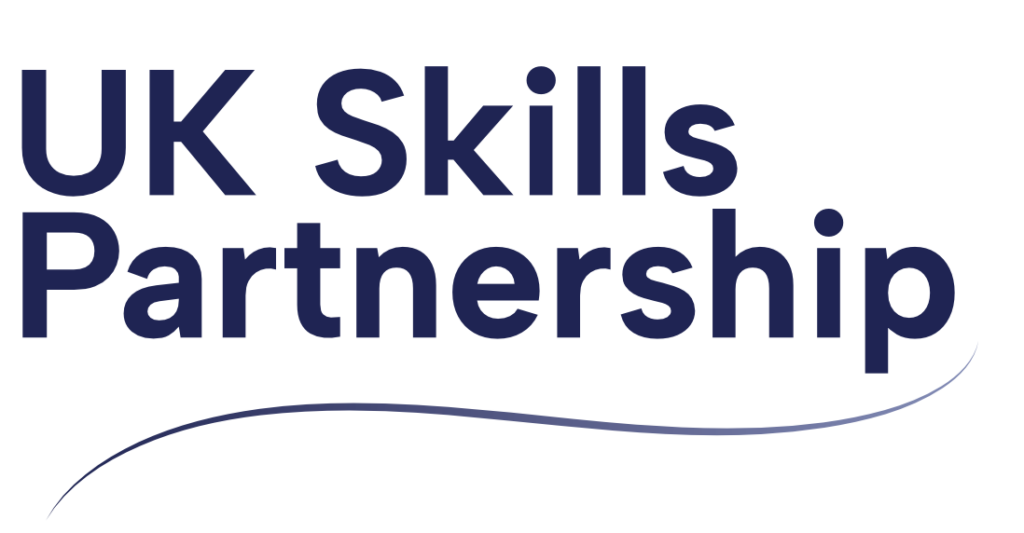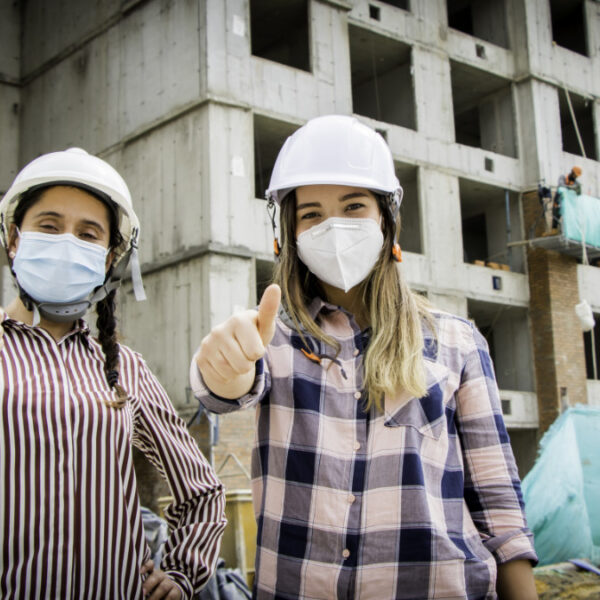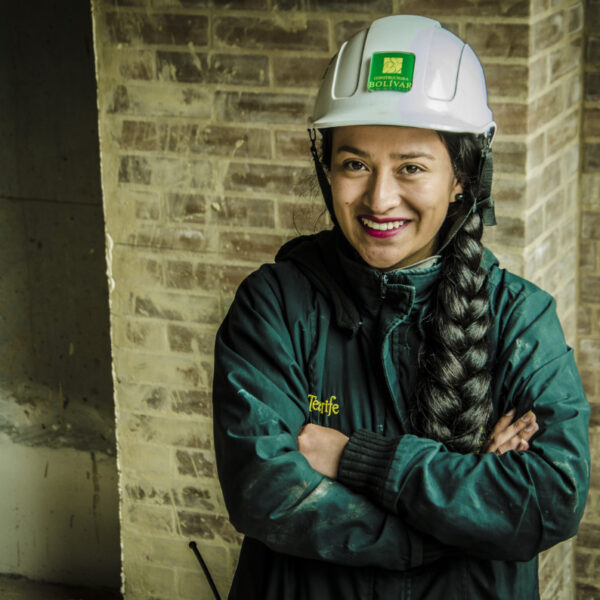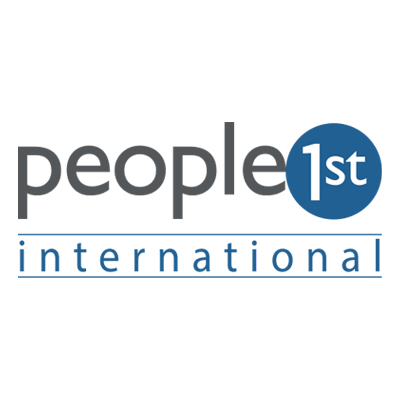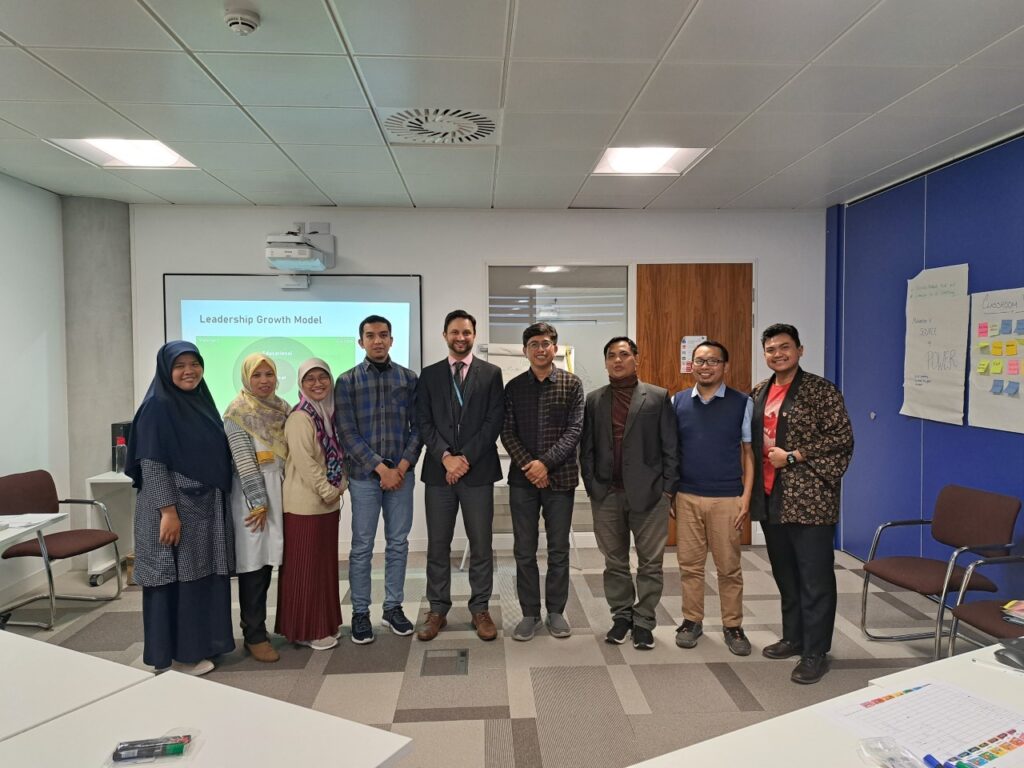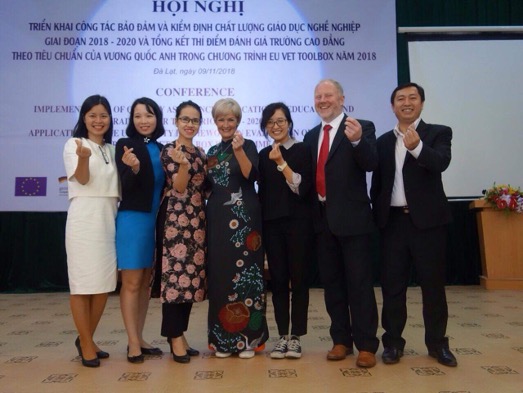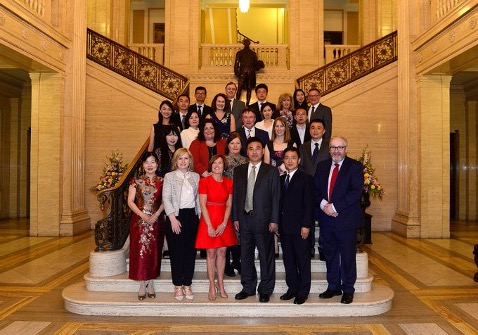Inclusive Construction Sector Employment in Colombia
Summary
A Partnership with the Colombian Chamber of Construction (Camacol), the trade association for construction, who has committed to increase gender equality and social inclusion among its associates, which includes 1,700 businesses in Colombia to develop a training and labour inclusion model for women and young people in Colombia’s construction sector.
The detrimental effects of the Covid-19 crisis deepened inequalities and disproportionally affected young people and women in Colombia. In the quarter May-July 2020, the gender gap on the unemployment rate, reached 8.5% meaning that after the Covid-19 crisis the female unemployment rate increased to 25.5% in comparison to 17% male unemployment.
Although infrastructure and construction are key to economic recovery measures adopted by the Government of Colombia, this sector has not traditionally employed women and youth. According to the employed population by branch of activity, the participation of women corresponds only to 7% of those employed in the construction sector, and gaps persist in 95% of the positions in the sector.
The project was run as a pilot in the region of Valle del Cauca, which has a dynamic construction industry and accounts for 6.6% of the construction GDP of the whole country. The project focused on four key dimensions:
- engagement with the private sector and other key stakeholders;
- promoting a more inclusive organisational culture;
- training beneficiaries; and
- documenting the experience.
This approach meant the necessary structure and tools were designed to enable the model to be replicated elsewhere in Colombia with other stakeholders in the construction value chain.
To help increase inclusion of women and young people in the opportunities generated by the private sector in construction and infrastructure at a regional level we implemented the following activities:
- Carried out surveys, interviews and focus groups to identify the barriers and opportunities to access and permanence of women and young people in the construction sector, as well as good practices, gaining survey responses from 47 construction companies, completed 11 semi-structured interviews with CEO’s, general managers and HR directors of construction-related companies, and facilitated focus groups with 21 construction companies, 60 women and 22 youth.
- Created a model of training and labour inclusion of women and youth in the construction sector, together with a Gender Equality and Social Inclusion (GESI) toolkit.
- Designed and delivered a series of webinars and workshops for construction companies attended by 102 participants from 28 companies to support companies to adopt social and gender inclusion strategies. Workshop topics covered:
- Building job opportunities for women and youth in the construction sector;
- Strategies for Social and Gender Inclusion;
- Promotion of Violence Free Environments;
- Inclusive Recruitment Process.
- Designed a communication campaign to disseminate the objectives and outcomes of the pilot.
- Designed and delivered training courses on building information modelling (BIM) and sustainable construction for students enrolled in the last semesters of undergraduate programmes related to architecture and engineering:
- Working group established with 12 industry experts.
- 20 lesson plans and presentations developed and approved with additional resources.
- Curriculum for the environmental sustainability course developed and approved by the working group.
- Curriculum for the BIM course developed and approved by the working group.
- 109 women and young people trained in BIM and 51 in Sustainability.
Positive outcomes for partners, industry and the region included:
- Clear understanding of the current state of companies with regards to gender equality and social inclusion, as well as their internal needs and challenges which helped to inform and shape the model of training and labour inclusion to support employers in becoming more inclusive.
- Companies supported through training to help transform their culture into a more inclusive one: online sessions, guides, templates and tools have left companies with the tools needed to guide them through the actions to advance commitments that promote gender equality and social inclusion.
- Women and young people trained in the skills most demanded by the sector, helping to close the gap and facilitate their access to training programmes.
- The model of training and labour inclusion of women and youth in the construction sector, together with a Gender Equality and Social Inclusion (GESI) toolkit, was approved and adopted by Camacol, presenting the opportunity to apply it to other regions and to new companies.
Read more about this case study here.
Our team of expert international consultants support countries have a true thirst for professional development. We are passionate about helping young people, challenging social and gender exclusion, addressing the barriers to work and supporting continuous professional development of the existing workforce.
To discover how we can support in you to develop sustainable, practical skills solutions, get in touch via our website.
